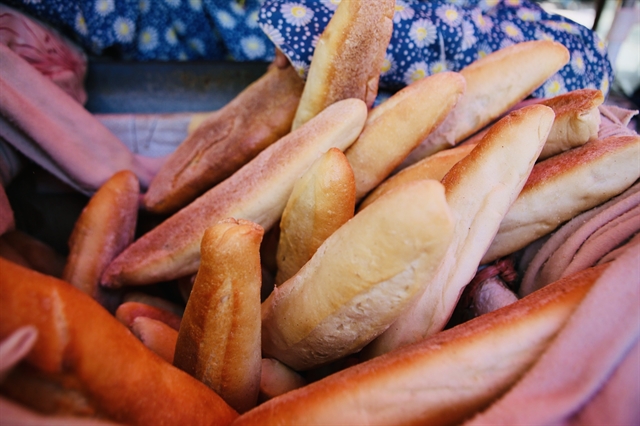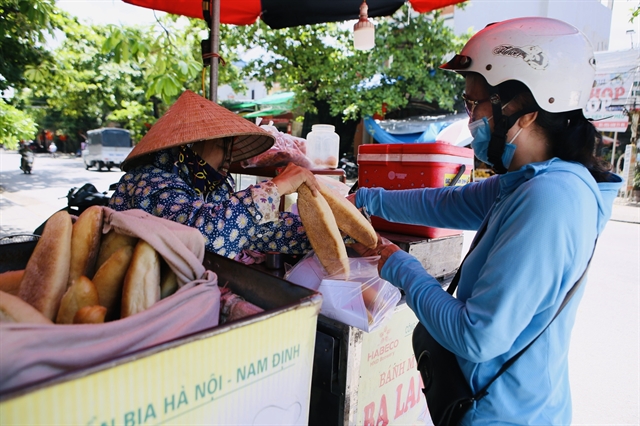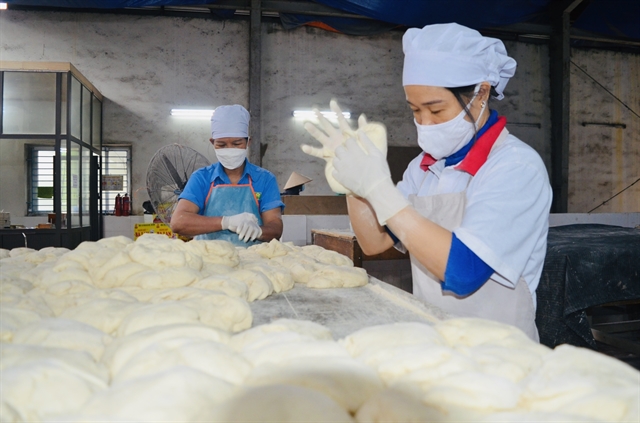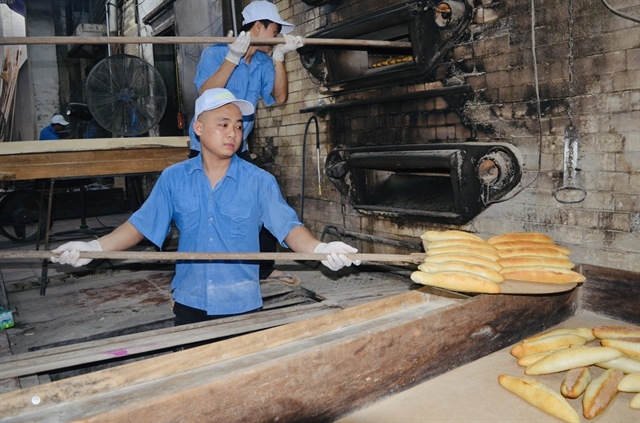 Life & Style
Life & Style

 |
| ON A ROLL: The most popular forms of Polish bread are smalland mediumsized baguettes. VNA/VNS Photos Mai Công Luật |
Nguyễn Khánh Chi
In 1969, when Việt Nam was fighting for national independence, the country received a great deal of assistance from socialist countries, mostly military goods, industrial machines and foodstuff. Among them, Poland presented the Asian nation with a 'bread-making plant' capable of producing 1,500 tonnes of bread annually. The facility was built in Nam Định Province.
The so-called bánh mỳ Ba Lan (Polish bread) quickly proved favourable after rice, and Nam Định became the key supplier of the "staff of life" for the whole northeastern region. And vendors selling hot, fresh baguettes were seen everywhere.
Gone are those days, but Polish bread still flourishes and is listed among the specialties of the locality.
 |
| BREADWINNER: A Bánh Mỳ Ba Lan shop in Nam Định City, Nam Định Province. |
Nowadays, storefront shops selling the bread can be found along major streets and roads in Nam Định City, and the most popular forms are small and medium-sized baguettes.
"Bánh mỳ is one of specialties of Việt Nam, and Nam Định in particular. Polish bread features a distinctive flavour and taste thanks to a special fermentation process, and salt and water sources in the locality," said Lê Thị Thiết, chairperson of Nam Định Culinary and Cultural Association.
"Cream-coloured, the soft, dense inside of the baguettes makes their taste so unique and different from other types of bread. The bread can be frozen for 15 or 20 days and eaten with or without other stuff like pate, roasted meat, condensed milk or whatever."
Despite the development of commercial bakeries, the majority of Polish bread sold in the locality comes from the original plant, which is now owned by Hà Nội - Nam Định Brewery JSC.
Each year, the plant supplies about 700 tonnes of bread of various types, with bread baked from early morning until 4.30pm daily.
 |
| BREADWINERS: Kneading the dough for Polish bread is the only part of the process done manually by workers. |
"Every day, we queue for the bread from the plant at around 4am so we can start selling hot loaves at 5am," said Hoàng Thị Nhạn, owner of a Bánh Mỳ Ba Lan shop on Thái Bình Street, Nam Định City.
Nhạn and her husband have been in business for over 30 years and the bread shop is still their family's economic mainstay. On weekdays, they sell between 200 and 300 loaves and 100 more at the weekend.
"The classic taste and texture of the white bread remain the same over the years," said Nhạn's husband.
"Our customers are not only the locals. Sometimes we receive orders from even Sơn La and Quảng Ninh provinces, some hundreds of kilometres away from Nam Định," he said.
"I do hope that Polish bread retains its taste and position, so our business will keep thriving."
Food connoisseur Thiết said like other specialties of Nam Định, she has always cared about the preservation and protection of the Polish bread brand so that many more people know about it and concurrently help the locals economically thrive from the business.
"There must be the joint efforts of all stakeholders to promote the bread beyond the locality," she said, adding that in any trips at home or abroad to promote Vietnamese and Nam Định cuisine, she put Polish bread on the menu to introduce it to people in other localities and countries.
As there was only one bread-making plant with tens of skilled workers, the capacity and human resources are limited, so ideally, potential investors chipped in to enable the business to develop, Thiết said.
 |
| LOTS OF LOAF: Each year the Bánh Mỳ Ba Lan Plant supplies 700 tonnes of hot, fresh bread. |
"The first time I heard of Polish bread was when I visited the city, I saw many bread shops, thinking the baguettes are like the other types of bread I have tasted," said a Hanoian.
"But I knew I was wrong as soon as I had the first bite. Its unique taste and flavour are completely different," she said after paying VNĐ120,000 (US$5) for a package of 10 medium-sized baguettes.
"Abroad Polish bread is praised for its diversity and unique taste, in Poland it has a special place not only on the table but also in the country's culture," a piece of writing titled Polish bread - eight centuries of taste and tradition on http://poland.pl in October 2018 wrote.
For the Nam Định people, Polish bread was also associated with memories of the past, Thiết said, stressing the necessity to preserve this 'precious gift'. VNS




.jpg)